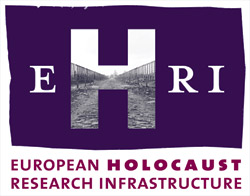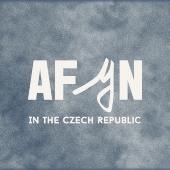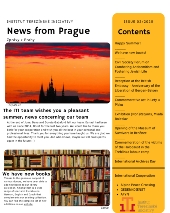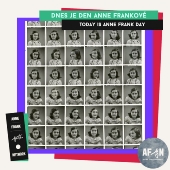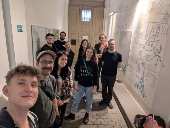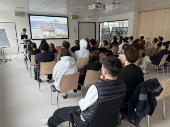Countering Holocaust Distortion in Education (CHDE)
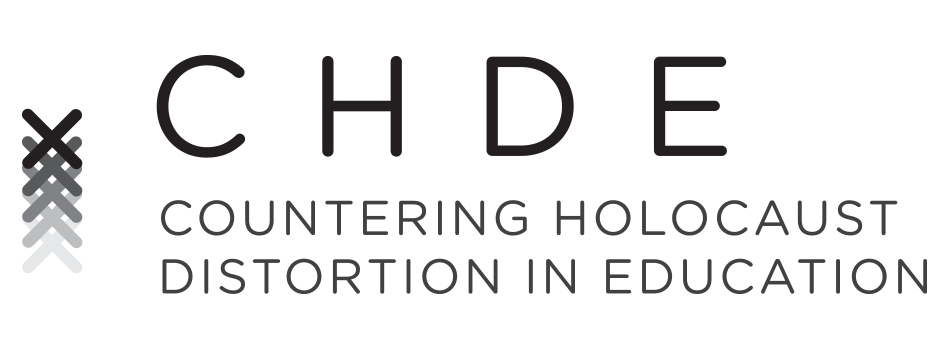
After months of voluntary work and dedication of our partners, we are delighted to officially announce the start of our new project Countering Holocaust Distortion in Education (CHDE). Terezín Initiative Institute (ITI) in partnership with Human Rights Institute (HRI), KiGA, and Centropa is a successful applicant for project support from the Citizens, Equality, Rights and Values (CERV) programme of European Union.
Holocaust denial has largely been relegated to the fringes of extremist groups. However, Holocaust distortion remains rampant and is on the rise. Young people are particularly vulnerable as these harmful narratives spread unchecked on social media platforms. Preventative measures during individuals‘ formative years can significantly reduce their susceptibility to adopting, fostering, and spreading false narratives. The education system offers valuable opportunities to counter distortion and promote remembrance. However, in formal education it depends heavily on the capacity of teachers, especially in lower secondary and secondary schools. Research indicates that many teachers lack the ability to challenge Holocaust distortion effectively. Despite this, there is a high willingness among educators to improve their capacity in this area.
The CHDE project aims to address this gap through online capacity-building measures based on a needs analysis of teachers in Slovakia and Czechia. The consortium members involved in this project have a proven track record in teacher training, combating Holocaust denial and distortion, and promoting Holocaust remembrance. The educational workshops will be collaboratively designed by all partners, with the lead applicant coordinating implementation in Slovakia and Czechia. Impact will be measured through pre and posttest, and the results will be actively disseminated across the EU as part of the project.

29. 5. 2025 the first webinar for teachers, Holocaust Denial and Distortion; Differences and History, took place. Thank you to all the attendees for your attention and thoughtful discussion.
Three weeks have already passed since the International Youth Forum started in South Carolina, hosted by the Anne Frank Center at the University of South Carolina (USC). Our very own Ani from Afyn.cz was one of the delegates. She has shared her reflections on the experience, what she learnt, and what she will take away from it. Read her report to get a glimpse of the IYF 2025!
It's the middle of summer, and we're bringing you the latest issue of our newsletter, News from Prague. We wish you a wonderful rest of your vacation and enjoyable reading.
This week, a group of students from the US (some with Czech family ties) has visited us as part of their summer school in the Czech Republic organised by the Mestenhauser Institute for International Collaboration (MIIC).
Our GEDENKDIENST-Volunteer Laurenz joined the Alpine Peace Crossing (APC) in Krimml to cross the Austrian Alps in remembrance of the thousands of Jews who fled the antisemitism that was still rampant in Europe after 1945. Laurenz welcomed the team to Jachymka a few weeks ago.
Yesterday we celebrated Anne Frank's legacy in a creative way by showcasing the artworks submitted by talented contributors at Žižcafé Therapy.
On Saturday our GEDENKDIENST volunteer Laurenz welcomed the team of the Alpine Peace Crossing to Jachymka to show them our work.
Alpine Peace Crossing (APC) is an Austrian organization based in Krimml (Salzburg province).
Our Volunteer Laurenz was in Austria last week to promote the GEDENKDIENST program at his former school, the HAK 1 in Salzburg. Speaking to about 60 people from the 4th grade he talked about his experiences and encouraged the students to also use the opportunity to do a Gap-Year with a positive impact. Besides the remembrance work and the work and history of our institute, Laurenz told the students about the challenges and the many wonderful things that come with moving abroad and starting a new job fresh out of school.
We want to thank the HAK 1 business school in Salzburg for giving Laurenz the opportunity to promote the program and the students for their keen interest.






